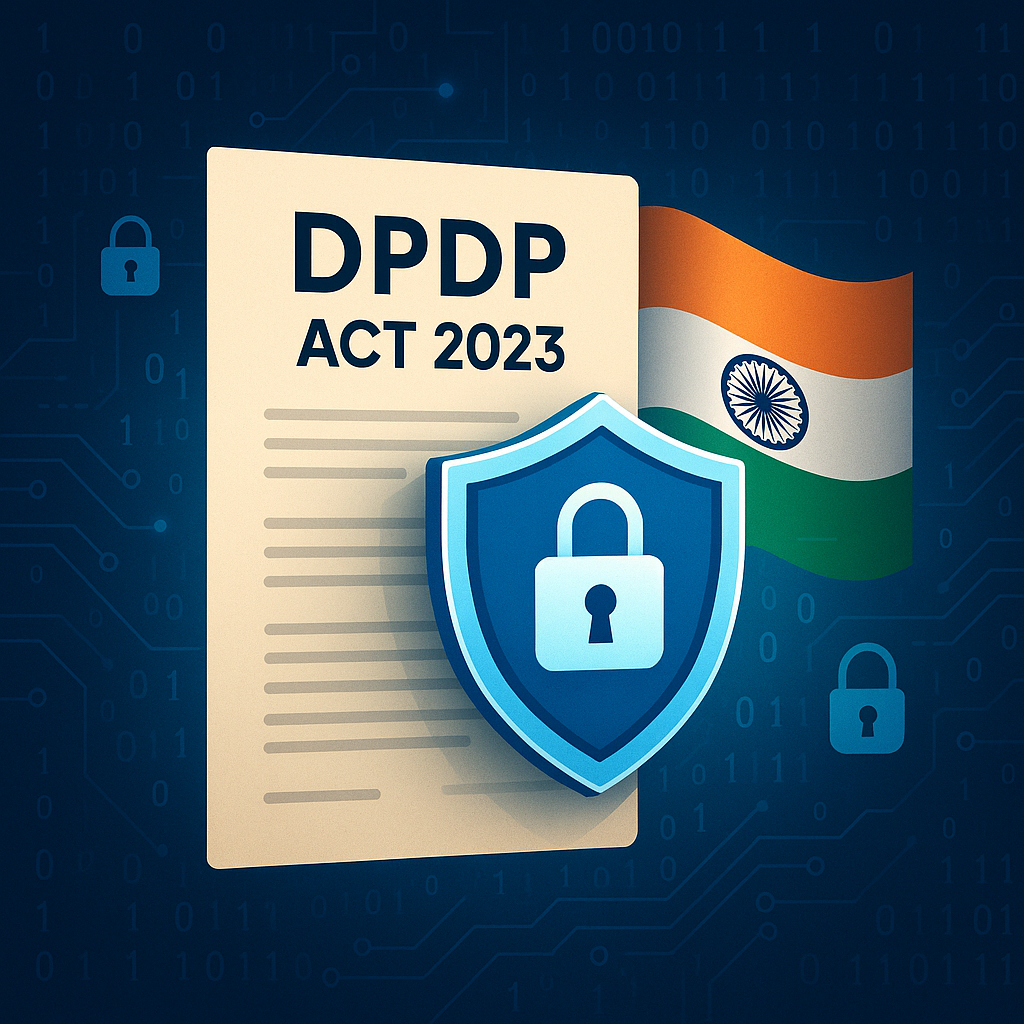Navigating the DPDP Act 2023: A Comprehensive SME Compliance Guide for 2025
Introduction
The Data Protection and Digital Privacy (DPDP) Act 2023 marks a significant milestone in India’s approach to data privacy and protection. With new regulations set to take effect in 2025, small and medium enterprises (SMEs) must equip themselves with the right knowledge to comply with these evolving standards. This guide breaks down the essential requirements of the DPDP Act, the step-by-step process your SME can implement for compliance, potential penalties for non-compliance, and best practices to ensure you stay on the right side of the law.
Understanding the DPDP Act 2023

The DPDP Act introduces comprehensive rules governing the collection, storage, and processing of personal data. Its primary aim is to safeguard individuals’ right to privacy and hold businesses accountable for their data handling practices.
Key Objectives of the DPDP Act
- Enhancing Data Privacy: Protects individuals against data misuse and establishes a framework for responsible data practices.
- Accountability for Data Handlers: Mandates that businesses implement robust data governance practices.
- Transparency Requirements: Encourages clarity in how organizations handle personal data.
Step-by-Step Compliance Process for SMEs
To navigate the complexities of the DPDP Act effectively, SMEs should follow a structured approach to compliance. Here’s a step-by-step process.
Step 1: Assess Current Data Handling Practices
Evaluate your existing policies on data collection and processing to gauge your current compliance status.
- Conduct a Data Audit: Identify what personal data you collect, where it is stored, and who has access.
- Document Data Flows: Create a mapping document that outlines the flow of information and types of data handled.
Step 2: Develop a Data Protection Policy
Draft a clear and detailed data protection policy that aligns with the requirements of the DPDP Act.
- Key Elements to Include:
- Purpose of data collection.
- Types of personal data processed.
- Consent mechanisms employed.
- Data retention timelines.
Step 3: Implement Necessary Changes
Make required adjustments to align with the law, including updating your IT systems and business practices.
- Invest in Cybersecurity: Deploy technology solutions to protect against data breaches.
- Training Employees: Conduct regular workshops and training sessions on data protection for all employees.
Step 4: Establish a Data Protection Officer (DPO) Role
If your organization qualifies, appoint a Data Protection Officer to oversee compliance efforts.
- DPO Responsibilities:
- Monitoring compliance with the DPDP Act.
- Serving as a point of contact for individuals regarding data-related concerns.
- Coordinating with authorities in case of data breaches.
Penalties for Non-Compliance

Failure to comply with the DPDP Act can lead to severe repercussions for businesses operating in India. Understanding these penalties is crucial for SMEs.
Potential Consequences
- Financial Penalties: Organizations may face fines of up to ₹250 crores depending on the severity of the violation.
- Legal Action: Non-compliance can lead to lawsuits from affected individuals, causing reputational damage and potential financial strain.
- Licensing Issues: Persistent violations may result in the loss of operational licensing.
Best Practices for Compliance
Adhering to the DPDP Act not only mitigates risks but also strengthens your organization’s reputation. Here are some best practices:
Proactive Data Governance
- Regular Compliance Reviews: Schedule annual reviews of your data protection policies to ensure they remain current with technological advancements and legal requirements.
- Use of Consent Management Tools: Implement solutions that allow users to manage their preferences easily.
Engaging with Stakeholders
- Transparent Communication: Keep open lines of communication with clients regarding how their data is used.
- Feedback Mechanisms: Encourage customers to voice their concerns about data handling practices directly.
Conclusion
Navigating the DPDP Act 2023 will undoubtedly present challenges for SMEs, but with a thorough understanding of the compliance process, businesses can turn these challenges into opportunities for growth. By prioritizing data protection and privacy, you not only adhere to the law but also build trust with your customers.
Are you ready to take the necessary steps towards compliance? Start your journey today to secure your business and uphold the rights of your customers!
“The goal isn’t just compliance; it’s creating a culture of trust and accountability.”
By staying informed and proactive, your SME can thrive under the new regulations. For more insights on data protection, consider visiting The Ministry of Electronics and Information Technology for the latest updates and resources.

